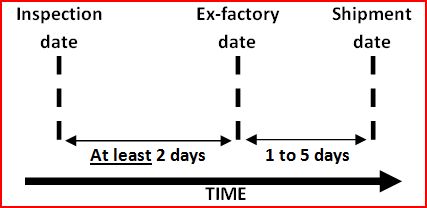Exploring the Benefits of a China Pre-shipment Inspection
With China being a major player in the global manufacturing industry, businesses and consumers worldwide frequently engage in trade with Chinese suppliers. While this opens up a world of opportunities, it also presents potential risks related to product quality, compliance, and shipping processes. To mitigate these risks, a crucial step that both importers and exporters can take is to conduct a pre-shipment inspection (PSI) in China. This article explores the benefits of a China pre-shipment inspection and why it should be an integral part of any international trade process.
What is a Pre-shipment Inspection (PSI)?
A pre-shipment inspection is a quality control measure employed by importers to assess the quality, quantity, and conformity of products before they are shipped from the exporting country, in this case, China. The inspection is conducted by third-party inspection companies or quality control agencies with expertise in various industries. The primary objective of a PSI is to ensure that the products meet the buyer’s specifications and the applicable international standards and regulations.
Benefits of a China Pre-shipment Inspection
- Quality Assurance: One of the most significant benefits of conducting a pre-shipment inspection in China is the assurance of product quality. By inspecting the goods before they are shipped, importers can identify any defects, discrepancies, or deviations from the agreed-upon specifications. This process helps in avoiding costly quality issues, potential recalls, and negative impacts on the importer’s reputation.
- Compliance and Safety: Different countries have distinct product regulations and safety standards. A pre-shipment inspection in China ensures that the exported products adhere to the specific requirements of the importing country. This includes product labeling, safety certifications, and any other relevant compliance standards. Ensuring compliance helps importers avoid potential legal issues and entry barriers in their respective markets.
- Minimize Risks and Disputes: By identifying and resolving quality issues at the source, before the goods leave China, importers can minimize the risks of receiving substandard or defective products. This also reduces the likelihood of disputes arising between the importer and the exporter, fostering a more transparent and amicable business relationship.
- Timely Corrections: If any discrepancies are found during the pre-shipment inspection, there is still time for the exporter to rectify the issues before shipping the goods. This avoids delays in the supply chain and ensures that the products reach their destination on time.
- Cost-effectiveness: While some importers may perceive pre-shipment inspections as an additional cost, it is a proactive investment that can save substantial expenses in the long run. The cost of dealing with defective products after they have arrived at their destination can be significantly higher than the inspection fee.
- Supplier Evaluation: Conducting regular pre-shipment inspections allows importers to assess the performance of their Chinese suppliers consistently. It provides valuable feedback on supplier reliability, consistency, and their commitment to maintaining quality standards. Based on inspection reports, importers can make informed decisions about continuing or modifying their business relationships with specific suppliers.
- Enhanced Brand Reputation: Consistently delivering high-quality products to customers enhances the importer’s brand reputation. Customers trust brands that maintain quality standards and promptly address any issues that may arise. Pre-shipment inspections contribute to building this trust and credibility in the market.
- Customized Inspection Criteria: The inspection process can be tailored to meet the specific needs of the importer and the industry. The importer can define the inspection criteria, sampling procedures, and focus areas to ensure that the inspection aligns with their requirements.
- Conformity to International Standards: Pre-shipment inspections verify whether the products meet the relevant international standards, such as ISO, ASTM, or CE. This is particularly important for industries where adherence to specific standards is critical, such as electronics, pharmaceuticals, and automotive.
Conclusion
In conclusion, a China pre-shipment inspection is a crucial step in the international trade process that offers numerous benefits to both importers and exporters. From ensuring product quality and safety to compliance with international standards, the advantages of PSI are far-reaching. By investing in pre-shipment inspections, businesses can significantly reduce risks, enhance their brand reputation, and foster long-term, successful partnerships with Chinese suppliers. Embracing pre-shipment inspections as a standard practice demonstrates a commitment to quality and customer satisfaction, making it an essential tool for businesses engaged in global trade with China.



